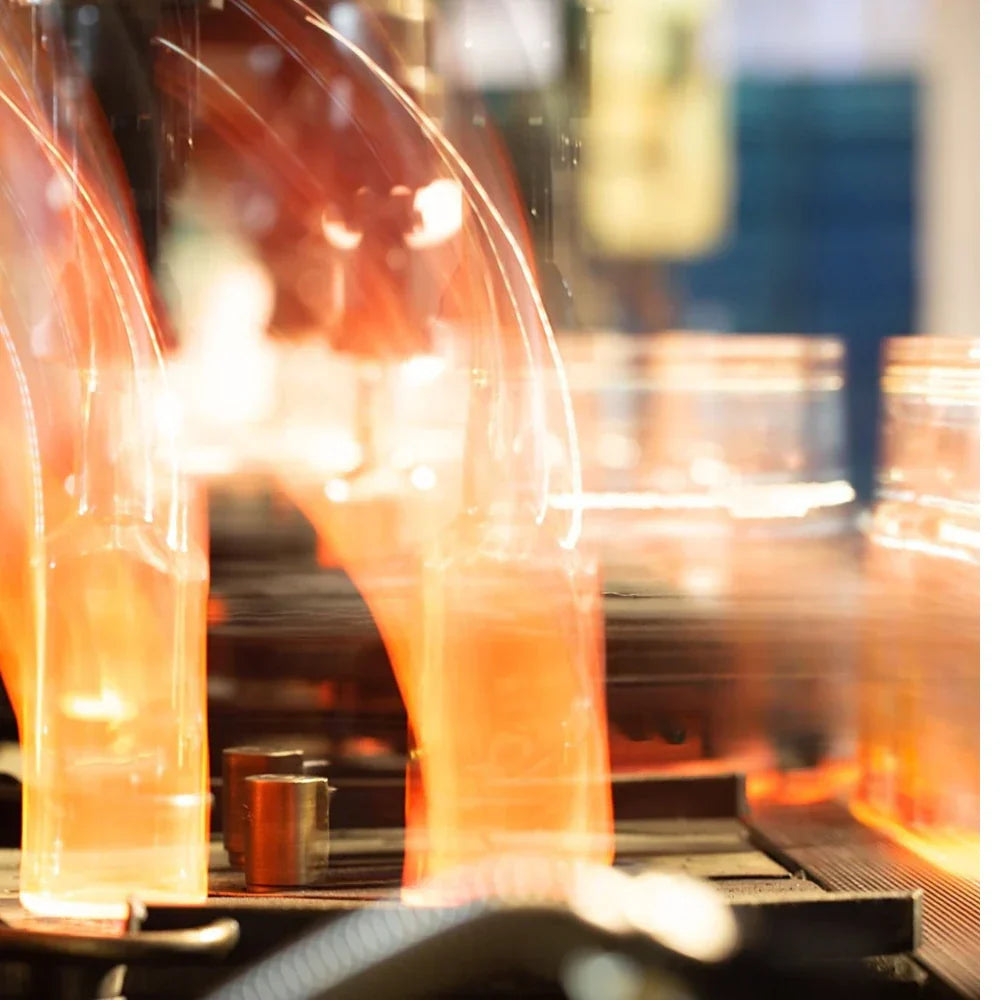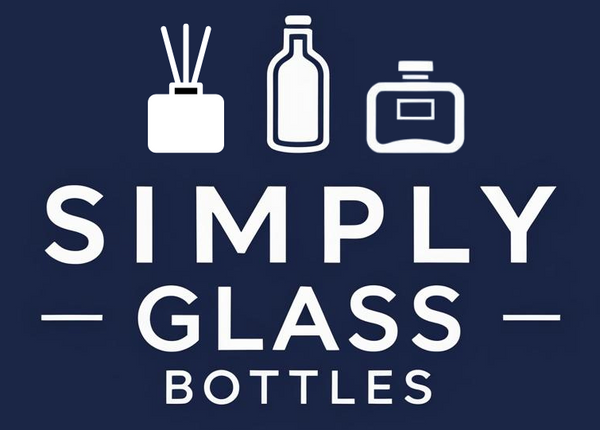
The Future of Glass Packaging
Share
The Future of Glass Packaging: Trends to Watch
Glass packaging has stood the test of time, serving as a reliable and elegant vessel for everything from beverages to cosmetics. With increasing concerns about environmental sustainability, consumer preferences, and technological advancements, glass packaging continues to evolve. In this blog, we will explore the trends shaping the future of glass packaging, and why this material remains a key player in the packaging industry.
Sustainable Packaging: A Growing Demand for Eco-Friendly Solutions
As the world becomes more eco-conscious, the demand for sustainable packaging solutions is on the rise. Glass is naturally positioned as an eco-friendly option due to its infinite recyclability and the fact that it is made from natural raw materials such as sand, soda ash, and limestone. Unlike plastic, which can degrade over time, glass maintains its integrity when recycled, meaning it can be reused infinitely without losing quality.

Trends to Watch:
- Closed-Loop Recycling Systems: More brands are adopting closed-loop systems, where glass containers are collected, cleaned, and refilled, further reducing waste. This not only promotes sustainability but also enhances brand loyalty among environmentally conscious consumers.
- Lightweight Glass: In an effort to reduce energy consumption during transportation, manufacturers are focusing on making glass bottles and jars lighter while retaining their strength. Lightweight glass reduces carbon emissions and transportation costs without compromising the quality or safety of the product.
- Eco-Labels and Certifications: As consumers become more discerning, brands are placing greater emphasis on eco-certifications and sustainable packaging labels. Glass packaging is increasingly promoted with environmental claims, including its recyclability and lower carbon footprint.
Glass Packaging for Premium and Luxury Products
Glass has long been associated with luxury, and this trend is only set to grow. Its sleek, elegant appearance, weight, and tactile appeal make it the go-to material for high-end products, including perfumes, fine spirits, gourmet foods, and skincare. In the future, brands are likely to push the boundaries of design and artisanry to create packaging that speaks to exclusivity and sophistication.
Trends to Watch:
- Custom Glass Designs: The rise of personalized and bespoke packaging is a growing trend. High-end brands are working with designers to create unique, intricate glass bottles that are works of art in themselves. This could include special engravings, unique shapes, and multi-layered glass designs.
- Minimalist Luxury: The luxury market is also embracing minimalist design with clean lines, frosted glass, and subtle finishes. The focus is on understated elegance that reflects the quality of the product inside.
- Smart Glass: Technological advancements are opening doors for “smart glass,” which could be integrated with sensors, RFID tags, or augmented reality (AR) features to create interactive packaging experiences for premium products.
Glass Packaging in the Beverage Industry
The beverage industry is one of the largest users of glass packaging, particularly for beer, wine, and soft drinks. As consumers continue to prioritize health-consciousness, sustainability, and premium experiences, glass is set to play a larger role in this sector. It is already a popular choice for craft beers and artisanal beverages due to its ability to preserve the taste and aroma of drinks.
Trends to Watch:
- Craft and Boutique Beverages: As the craft beverage movement continues to grow, glass will remain the packaging material of choice for many craft breweries, wineries, and distilleries. Its premium appeal, combined with the fact that it does not interact with the product (like plastic can), makes it ideal for high-quality beverages.
- Sustainable Glass Bottles for Beverages: The use of recycled glass in beverage packaging is becoming more common. Many beverage companies are using post-consumer recycled (PCR) glass to create new bottles, reducing the environmental impact of new glass production.
- Glass Cans: Although aluminium cans are the norm for many beverages, glass cans—compact, lightweight, and recyclable—are gaining popularity in the beverage industry. These cans offer the benefits of glass without the weight, making them an attractive option for premium beverages like craft beers and sparkling waters.

Personalization and Branding Opportunities
As consumers become more invested in the stories behind the brands they support, the need for personalized and unique packaging is rising. Glass packaging offers a blank canvas for creativity, allowing brands to use custom colours, shapes, and branding elements to stand out on the shelves.
Trends to Watch:
- Limited Edition Packaging: Glass is increasingly used for special edition or seasonal releases. Whether it is for a holiday, anniversary, or a limited-time flavour, glass packaging offers a premium canvas for brands to elevate their products and create a sense of exclusivity.
- Interactive and Engaging Packaging: With the rise of digital technologies, packaging is becoming more than just a container. Augmented reality (AR) and QR codes on glass bottles allow consumers to engage with a brand in new ways, such as learning more about the product’s origin, production, and sustainability efforts.
- Customization and Small-Batch Production: Glass packaging lends itself well to small-batch production, which is especially appealing to businesses in niche markets. Whether it is custom etched bottles or colour matched glass containers, more brands will offer personalization options for customers, further enhancing the unboxing experience.
Innovation in Glass Manufacturing
The glass industry is not static—it is constantly evolving to meet consumer needs and industry demands. As the packaging world becomes more advanced, glass manufacturers are exploring new techniques and technologies to improve the overall performance of glass packaging.
Trends to Watch:
- 3D Printing and Glass Moulding: 3D printing is being explored in glass packaging to create intricate designs that were once impossible to produce using traditional methods. This technology can allow for custom, high-quality designs that add value to premium products.
- Smart Glass Technology: Smart glass, with integrated sensors, is a technology that could revolutionize glass packaging in the coming years. This innovation would allow packaging to track temperature, humidity, and other environmental factors, ensuring the product inside remains in optimal condition.
- Glass Coatings: New glass coatings and treatments are making glass even more versatile. For example, anti-fingerprint coatings reduce the visibility of smudges on glass packaging, keeping the containers looking pristine, while UV-resistant coatings can help protect sensitive products like cosmetics and pharmaceuticals from degrading.
Increased Focus on Health and Safety
In a post-pandemic world, consumers are becoming more concerned with the safety of the products they purchase. Glass is naturally non-porous and does not leach harmful chemicals into products, making it a favoured choice for health-conscious consumers, especially in the food and beverage, skincare, and pharmaceutical industries.
Trends to Watch:
- Glass Packaging for Personal Care: Skincare brands, particularly those focused on natural and organic products, are turning to glass for packaging due to its purity and non-reactive properties. Glass packaging does not interfere with the product's ingredients, unlike some plastic containers that can leach harmful chemicals.
- Contactless Packaging: In response to the pandemic, contactless packaging innovations are emerging. Glass packaging, with its solid and safe properties, offers an excellent option for brands looking to reassure consumers about hygiene and safety during product handling.

As sustainability, innovation, and consumer preferences continue to drive the packaging industry forward, glass will remain at the forefront due to its unparalleled qualities. From its eco-friendly recyclability and premium appeal to its versatility in design and customization, glass packaging is evolving to meet the demands of a changing world. Whether it is in the luxury market, the beverage industry, or health-conscious sectors, glass is poised to remain a vital and cherished packaging solution for the future.
The future of glass packaging is bright, with endless opportunities for innovation, sustainability, and creativity. For brands looking to make a positive environmental impact while enhancing their consumer experience, glass remains the material of choice, and one that will continue to captivate consumers for years to come.
